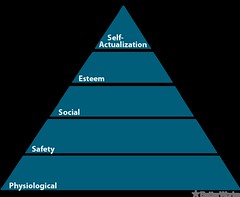| 5819947991 | empiricism/empirical methods | Information is collected by objective observations and experimentation using the scientific method. |  | 0 |
| 5819947992 | structuralism | An early school of psychology that used introspection to explore the elemental structure of the human mind (WUNDT, TITCHENER). |  | 1 |
| 5819947993 | functionalism | A school of psychology that focused on how our mental and behavioral processes function - how they enable us to adapt, survive, and flourish (JAMES). |  | 2 |
| 5819947994 | behaviorism/behavioral perspective | A theoretical orientation based on the premise that scientific psychology should study only observable behavior (LEARNING, REWARDS, PUNISHERS) |  | 3 |
| 5819947995 | humanistic perspective | Perspective that emphasizes the growth potential of healthy people and the individual's potential for personal growth (NEEDS, SELF-ACTUALIZATION) |  | 4 |
| 5819947996 | biological/biopsychological perspective | Looking at the physical and genetic determines of behavior (BRAIN, BODY, GENES, HORMONES) |  | 5 |
| 5819947997 | psychology | Scientific study of behavior and mental processes | 6 | |
| 5819947998 | nature-nurture issue | The longstanding controversy over the relative contributions that genes and experience make to the development of psychological traits and behaviors |  | 7 |
| 5819947999 | Survival of the Fittest (Natural Selection) | Process by which individuals that are better suited to their environment survive and reproduce most successfully (related to evolutionary approach) |  | 8 |
| 5819948000 | biopsychosocial approach | An integrated approach that incorporates biological, psychological, and social-cultural levels of analysis (ECLECTIC) |  | 9 |
| 5819948001 | evolutionary perspective | A relatively new specialty in psychology that sees behavior and mental processes in terms of their genetic adaptations for survival and reproduction (SURVIVAL VALUE, OFFSPRING) |  | 10 |
| 5819948002 | psychodynamic/psychoanalytic perspective | A branch of psychology that studies how unconscious drives and conflicts influence behavior, and uses that information to treat people with psychological disorders (UNCONSCIOUS, CHILDHOOD) |  | 11 |
| 5819948003 | cognitive perspective | an approach to psychology that emphasizes internal mental processes (THINKING!) |  | 12 |
| 5819948004 | social-cultural perspective | the study of how situations and cultures affect our behavior and thinking (SOCIETY, CULTURE, GROUPS) |  | 13 |
| 5819948005 | psychometrics | the scientific study of the measurement of human abilities, attitudes, and traits |  | 14 |
| 5819948006 | basic research | Pure science that aims to increase the scientific knowledge base. |  | 15 |
| 5819948007 | developmental psychology | A branch of psychology that studies physical, cognitive, and social change throughout the life span |  | 16 |
| 5819948008 | educational psychology | the study of how psychological processes affect and can enhance teaching and learning |  | 17 |
| 5819948009 | personality psychology | the study of an individual's characteristic pattern of thinking, feeling and acting | 18 | |
| 5819948010 | social psychology | The scientific study of how we think about, influence, and relate to one another | 19 | |
| 5819948011 | applied psychology | The branch of psychology concerned with everyday, practical problems, e.g., a psychologist who works directly with a client with problems is considered an applied psychologist | 20 | |
| 5819948012 | industrial-organizational psychology | application of psychological concepts and methods to optimizing human behavior in workplaces (HR help, employee incentive programs) |  | 21 |
| 5819948013 | human factors psychology | A branch of psychology that explores how people and machines interact and how machines and physical environments can be made safe and easy to use (psychology + engineering) |  | 22 |
| 5819948014 | counseling psychology | A branch of psychology that assists people with problems in living (often related to school, work, or marriage) and in achieving greater well-being |  | 23 |
| 5819948015 | clinical psychology | A branch of psychology that studies, assesses, and treats people with psychological disorders |  | 24 |
| 5819948016 | psychiatry | A branch of medicine dealing with psychological disorders; practiced by physicians who sometimes provide medical/drug treatments as well as psychological therapy. Medical degree M.D. |  | 25 |
| 5819948017 | Wilhelm Wundt | Opened the first psychology lab in 1879 and is known as the father of psychology |  | 26 |
| 5819948018 | Mary Calkins | Denied Harvard PhD, but became first female head of American Psychological Association. |  | 27 |
| 5819948019 | Margaret Floy Washburn | First women to get a PhD in psychology. |  | 28 |
| 5819948020 | Gestalt psychology | Focuses on how we organize the world around us - perception. We create order out of chaos and make things "whole". |  | 29 |
| 5819948021 | Sigmund Freud | Most famous psychologist of all time. Developed the psychoanalytic approach. Ideas heavily influenced by Darwin. |  | 30 |
| 5819948022 | John Locke | Nurture. "tabula rasa" - we are born a blank slate. |  | 31 |
| 5819948023 | Plato and Socrates | Knowledge is inborn/innate (NATURE) |  | 32 |
| 5819948024 | Aristotle | Knowledge comes from experience (NURTURE) |  | 33 |
AP Psychology History & Approaches Flashcards
Primary tabs
Need Help?
We hope your visit has been a productive one. If you're having any problems, or would like to give some feedback, we'd love to hear from you.
For general help, questions, and suggestions, try our dedicated support forums.
If you need to contact the Course-Notes.Org web experience team, please use our contact form.
Need Notes?
While we strive to provide the most comprehensive notes for as many high school textbooks as possible, there are certainly going to be some that we miss. Drop us a note and let us know which textbooks you need. Be sure to include which edition of the textbook you are using! If we see enough demand, we'll do whatever we can to get those notes up on the site for you!

